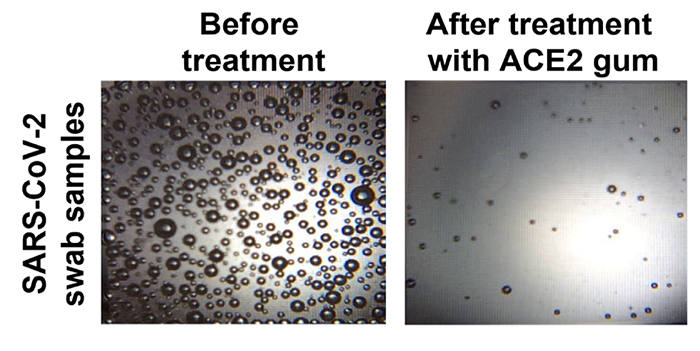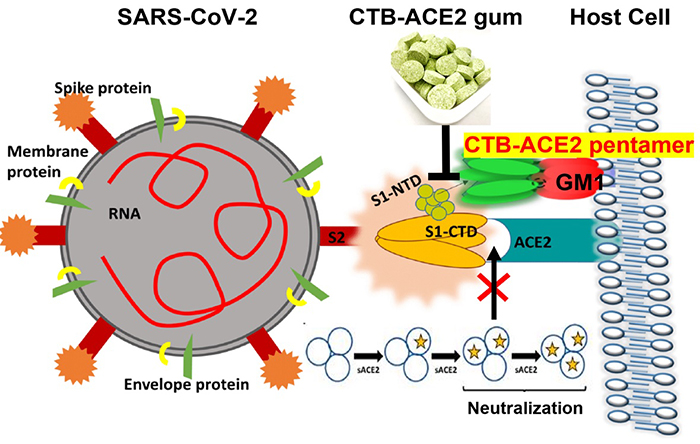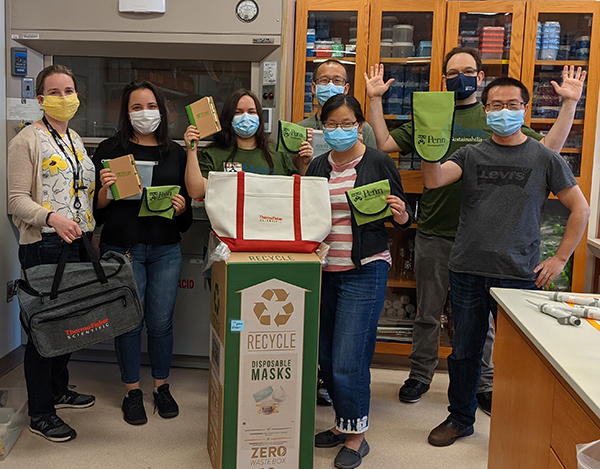Welcome Back from the President: Truly Without Peer
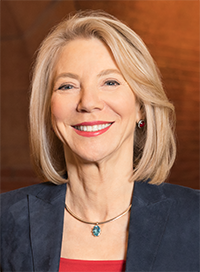 This will be my final Almanac Welcome Back column as the president of the University of Pennsylvania. I want to say from the bottom of my heart and with boundless affection, thank you! What a phenomenal run it has been with this ever-amazing Penn community!
This will be my final Almanac Welcome Back column as the president of the University of Pennsylvania. I want to say from the bottom of my heart and with boundless affection, thank you! What a phenomenal run it has been with this ever-amazing Penn community!
Seventeen years ago, when I first put pen to paper for the January issue, I wrote about our brand-new Penn Compact. We set out together—the very best faculty, staff, students, and alumni—united by a shared University vision to propel Penn from excellence to eminence.
Thanks to all of you and to every member of the Penn community, we have not only accomplished what we set out all those years ago to do. We have soared past each successive finish line, exponentially expanding the inclusion, innovation, and impact of our University, and changing and saving countless lives. Forget eminence. By every measure, Penn has performed so remarkably, our team so admirably, that the University of Pennsylvania now rightfully stakes its claim to preeminence.
We have achieved and shared so much together: Becoming the largest university to go all-grant for undergraduate financial aid; dramatically growing affordability and opportunity for the most talented students from all backgrounds; recruiting and retaining the finest and most diverse faculty; fostering groundbreaking innovation while breaking ground on millions of square feet of the most beautiful, sustainable, and cutting-edge campus facilities, renovations, and green spaces; and serving as a mighty force for good locally, nationally, and globally.
All of this we have done and much more. Through highs and lows, through the Great Recession and this terrible pandemic, through convocations and commencements, Hey Days and homecomings, Alumni Weekends and academic processions, edifying symposia and seminars beyond counting, jubilant matches at the Palestra and on Franklin Field, snow days on College Green and sunny afternoons in Penn Park. Throughout it all, I have always felt enormous pride and will always be profoundly grateful for my Penn family, who have made being president of this phenomenal institution without a doubt the very best job in the world.
Among the best parts of the best job is celebrating together the never-ending achievements of the Penn community. Take as just two recent examples out of many our latest Rhodes Scholars, Penn Seniors Raveen Kariyawasam and Nicholas Thomas-Lewis, and our newest Marshall Scholars, Penn Seniors Kennedy Crowder and Chinaza Ruth Okonkwo. Or the record-breaking success of our Power of Penn campaign, which raised more than $5.4 billion for Penn and inspired alumni and friend engagement like we’ve never seen before. Or our new $750 million investment to advance Penn’s contributions across many pathbreaking areas of scientific research. From the most recent semester alone, I could fill volumes with the array of impressive accomplishments and accolades for our preeminent Penn faculty, students, staff, and alumni.
When I first arrived at Penn, I already knew that our people are something special. To borrow from our founder, here is a community of action-oriented scholars distinguished by their unique inclination joined with a powerful ability to open doors, cross disciplines, and do good in the world. Here’s what I could only predict back then and what is fantastically manifest now: the incredible, irresistible momentum we would build, together. We would not only attain preeminence but continue to push smartly, joyfully ahead to the next advance, the next life-changing initiative, the next big chapter.
In my first-ever January Almanac column, I remarked that with the Penn Compact as our North Star, I saw nothing stopping us from skyrocketing to become a 21st century university truly without peer. We have indeed confronted historic challenges, but nothing has stopped us. Penn today is a preeminent American university with a global perspective for the 21st century and beyond, a leader and an educator without peer. That is because our people, my wonderful Penn family, are truly without peer. Thank you all for everything, and here’s to another fantastic semester of life-changing education, research, and service at Penn.

—Amy Gutmann, President
Kevin Johnson: David L. Cohen University Professor
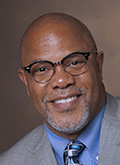 Kevin Johnson, a Penn Integrates Knowledge Professor who holds joint appointments in the department of computer and information science in the School of Engineering and Applied Science and the department of biostatistics, epidemiology, and informatics in the Perelman School of Medicine, has been named the David L. Cohen University Professor.
Kevin Johnson, a Penn Integrates Knowledge Professor who holds joint appointments in the department of computer and information science in the School of Engineering and Applied Science and the department of biostatistics, epidemiology, and informatics in the Perelman School of Medicine, has been named the David L. Cohen University Professor.
“David Cohen’s extraordinary leadership at the University and Penn Medicine, and longtime dedication to Philadelphia, has without a doubt shaped the booming campus, health system, and city we so much enjoy today,” said Penn President Amy Gutmann. “His dedication is mirrored by the extraordinarily influential, innovative, and committed Dr. Kevin Johnson, whose university professorship will now bear Ambassador Cohen’s name.”
Dr. Johnson came to Penn in 2021 from the Vanderbilt University School of Medicine. A board-certified pediatrician and leading medical informaticist, he is also vice president for applied informatics at the University of Pennsylvania Health System and has a secondary faculty appointment in the Annenberg School for Communication.
David Cohen has served for two decades on Penn’s Board of Trustees and recently concluded a 12-year term as chair. He was confirmed by the U.S. Senate in November 2021 as United States Ambassador to Canada, bringing to the role decades of experience as a senior executive at Comcast Corporation, chair of the Ballard Spahr law firm, chief of staff to Philadelphia Mayor Ed Rendell, trustee chair at Penn, and major player in a number of other business, civic, political, and philanthropic venues.
In addition to serving as a Penn Trustee, Mr. Cohen is a Penn alum, having graduated from what is now the University of Pennsylvania Carey School of Law in 1981.
His wife and son also attended the Carey Law School. Mr. Cohen’s leadership at Penn has been credited with helping guide the growth and advancement of Penn and its Health System, in close partnership with both President Gutmann and her predecessor, Judith Rodin.
“It’s an honor to hold a professorship named after Mr. Cohen,” Dr. Johnson said. “Throughout his career, he has provided inspired leadership across Penn and our city and region. He is a passionate believer in uniting the public, private, and nonprofit sectors to tackle complex challenges and strengthen communities. Those who know me know that I’ve played a similar role as a pediatrician who works with technology, and who uses digital media to communicate to lay audiences about both. His passion for this city and our University’s educational mission is inspiring.”
Vance Byrd: Presidential Associate Professor
 Vance Byrd joined Penn Arts & Sciences as a Presidential Associate Professor of Germanic Languages and Literatures on January 1. Dr. Byrd is a scholar of late-18th- and 19th-century German cultural studies, the history of the book and periodicals, literature and visual media, Black studies, and environmental humanities. He is the author of A Pedagogy of Observation: Nineteenth-Century Panoramas, German Literature, and Reading Culture, and has co-edited two books and two special issues of journals. His new co-edited collection, Queer Print Cultures, is forthcoming. Dr. Byrd’s research has been supported by grants from the National Humanities Center, the National Endowment for the Humanities, the Fulbright Commission, and the Getty Research Institute.
Vance Byrd joined Penn Arts & Sciences as a Presidential Associate Professor of Germanic Languages and Literatures on January 1. Dr. Byrd is a scholar of late-18th- and 19th-century German cultural studies, the history of the book and periodicals, literature and visual media, Black studies, and environmental humanities. He is the author of A Pedagogy of Observation: Nineteenth-Century Panoramas, German Literature, and Reading Culture, and has co-edited two books and two special issues of journals. His new co-edited collection, Queer Print Cultures, is forthcoming. Dr. Byrd’s research has been supported by grants from the National Humanities Center, the National Endowment for the Humanities, the Fulbright Commission, and the Getty Research Institute.
In 2019, Dr. Byrd was awarded a New Directions Fellowship from the Andrew W. Mellon Foundation. He is currently on the editorial boards of Monatshefte, The German Quarterly, and the Signale book series at Cornell University Press. He comes to Penn from Grinnell College.
The Presidential Professorships are five-year term chairs awarded by University of Pennsylvania President Amy Gutmann and approved by the Provost. These awards are made to outstanding scholars and individuals who contribute excellence and diversity to Penn’s inclusive community.
A Message Concerning Masks, Testing, and Vaccine Booster Clinics
January 7, 2022
We hope that all of you had a good winter break, and we are excited to welcome you back to the spring semester. While the current circumstances may not be what any of us would prefer, we are determined to sustain our core university missions. We know that we can count on every member of our community to be part of this effort, as we all navigate together this challenging phase of the pandemic. With that in mind, we are writing to update you on four key steps that we are taking to maintain our shared health and safety as we begin the semester. Please note that UPHS-affiliated faculty and staff should follow guidance from the Health System.
Pre-Arrival Testing: All students are required to complete pre-arrival testing 48 hours before returning to campus. Faculty, staff, and postdocs are also strongly encouraged to complete a test before returning to campus. A PCR test is preferred, but rapid tests are also acceptable. Those who receive a positive PCR test result must email their result to covidtesting@upenn.edu and report their positive result through PennOpen Pass. Those who receive a positive rapid test result must report their result through PennOpen Pass. Anyone with a positive pre-arrival test should complete their isolation at home before arriving to campus. Negative test results do not need to be submitted to the University. Those who do not have access to a pre-arrival test should immediately test upon arrival to campus and quarantine until they receive a negative test result.
Gateway Testing: As an additional safety measure, all students, faculty, staff, and postdocs who will be on campus and/or enrolled during the spring semester are required to complete a gateway test after returning to campus and no later than January 31, regardless of vaccination status or result of pre-arrival testing. Those arriving to campus after the end of January should test on the day they arrive to campus. This test must be completed through our Penn Cares testing system. Anyone with a positive result from a gateway test will be required to isolate and cooperate with our contact tracing efforts. All University community members can schedule their gateway test on the Penn Cares website.
Masking Requirement: Masking remains a key mitigation strategy in our efforts to minimize transmission during this virulent phase of the virus. Beginning January 10, all members of the Penn community in campus buildings will be required to double mask (layering a cloth mask on top of a disposable mask) or to wear a KN95 or N95 mask. We will also increase the availability of masks across campus.
Vaccine Booster Clinic: Vaccine booster clinics will be held on January 14, 17, 18, and 19. More information about scheduling a booster clinic appointment will be forthcoming. For more information about the booster requirement, please visit the Public Health Guidance page.
We are closely monitoring this evolving situation, and we will continue to communicate with you and to adjust our protocols as circumstances change. We are grateful for the extraordinary resilience and flexibility of our Penn community as we move forward, and we hope to be able to share some better days ahead in 2022.
—Amy Gutmann, President
—Beth Winkelstein, Interim Provost
—Craig Carnaroli, Senior Executive Vice President
—J. Larry Jameson, Executive Vice President for the Health System
A Message to Penn Faculty, Staff, and Postdocs
December 31, 2021
We hope that all of you have been enjoying the winter break. We are writing with several updates and reminders, as we head into the new year and the new semester, on the following topics:
- Updated CDC guidance on isolation and quarantine
- Available PCR testing on campus and required gateway testing
- Remote work
- Vaccine booster
The Centers for Disease Control and Prevention recently updated its guidance to reduce, for those who are fully vaccinated or boosted against COVID-19, both the length of isolation after contracting COVID-19 and the quarantine period for those exposed to the virus. Accordingly, we have also updated our guidance and provided additional FAQs. We will communicate further with students about this guidance before the start of the spring semester.
PCR testing is readily available on campus for all students, faculty, staff, and postdocs throughout winter break. Symptomatic testing is also available and has been relocated to Irvine Auditorium. Additional information about hours and locations can be found here. Gateway testing will be required of all faculty, staff and post-docs upon return to campus and no later than January 24, 2022.
All members of the Penn community who do not have an approved exemption are required to get a booster vaccine shot by January 31, 2022 or as soon as they become eligible if they have not already done so, and to document their latest dose in Workday. The University will offer additional booster clinics in January, and we will share the details about those clinics as the dates get closer. Those who have been granted a medical or religious exemption from vaccination will be required to continue to test twice a week.
University staff members, as indicated in our message on December 23, are reminded to consult with their supervisors about working remotely until January 24, 2022.
UPHS-affiliated faculty and staff should follow guidance from the Health System.
We will continue to share information and updates as we move forward. We wish you all good health and happiness for the new year and through the remainder of winter break.
—Amy Gutmann, President
—Beth Winkelstein, Interim Provost
—Craig Carnaroli, Senior Executive Vice President
—J. Larry Jameson, Executive Vice President for the Health System
Important Information Regarding the Start of the Spring Semester
December 23, 2021
As we wish you all a joyful and healthy holiday break, we write to update you on our plans to start the new semester in a way that ensures the safest and most fulsome Penn educational experience.
Recognizing the high level of concern about the Omicron variant and its potential impact on spring semester operations, we have been consulting closely with medical and public health experts, as well as monitoring data concerning the variant’s spread. While this is an uncertain situation, the data modeling suggests that we must take steps to prepare for a potential surge of cases in January. To that end, we summarize below our plan for the start of Penn’s 2022 spring semester. Our plan is designed to optimally protect the health and safety of our community and sustain the educational and research mission that defines our university. It is supported by the talented and dedicated Penn team that has done so much since the start of the COVID-19 pandemic in spring 2020.
Delayed In-Person Classes and Student Move-In
We will begin undergraduate classes as scheduled on January 12 in virtual formats online (except for clinical courses), and then transition to in-person classes on January 24. We will also delay undergraduate student move-in to campus housing by one week, to begin on January 15. More detailed information will follow in the coming weeks. Students in graduate and professional programs will receive additional guidance from their programs, as will postdoctoral fellows. These measures are designed to reduce the spread of COVID-19 on campus during the peak weeks of January when the spread will potentially be most active.
Pre-Return to Campus Testing Requirements
All students will be required to complete a negative PCR test 48 hours before returning to campus. We will send more information in January about this requirement. Free testing will continue to be available to all students, faculty, staff, and post-docs on campus throughout winter break; you can find the testing schedule here.
Ongoing Mitigation Measures
We will continue to enforce our testing, masking, OpenPass, and vaccination guidelines, along with our new booster requirement. Upon initial return to campus, we will require a new gateway test for all faculty, staff, students, and post-docs. We also will continue our suspension of indoor social events. Dining will be grab-and-go pending further evaluation of the case trends. We will follow up in the new year with more details concerning these policies and actions.
Faculty and Staff Information
For faculty members, you will hear more from your individual deans about plans and protocols in your schools. For staff members, we strongly encourage deans and vice presidents to allow employees to work remotely until January 23, when possible, given job responsibilities and organizational needs. UPHS-affiliated faculty and staff should follow guidance from the Health System. We are enormously appreciative of all employees who continue to work on campus in support of our entire community.
In the weeks ahead, we will continue to assess the evolving context and communicate to you about it. We will not hesitate to change our guidance based upon input from our medical and health experts. We are grateful for the patience, resilience, and flexibility of every member of our community as we face unpredictable circumstances together.
We again wish you a healthy and happy holiday break, and we look forward to getting started together on the spring semester in the new year.
—Amy Gutmann, President
—Beth Winkelstein, Interim Provost
—Craig Carnaroli, Senior Executive Vice President
—J. Larry Jameson, Executive Vice President for the Health System
Athletics Events Closed To Public Effective Immediately
The Division of Recreation and Intercollegiate Athletics (DRIA) at the University of Pennsylvania has announced that it will be restricting spectators for all winter sports effective immediately and until further notice. This decision has been made in response to the increase in positivity rates of COVID-19 within the City of Philadelphia and after consultation with University and campus health leadership. This decision will help DRIA maintain athletic competition for our student-athletes and coaches as we continue to monitor local health conditions.
Penn Athletics Ticket Policy
Season Ticket Holders/Mini-Plans: Payment may be applied as a credit for future events, counted as a tax-deductible donation in support of Penn Basketball, or you may receive a refund. Please e-mail tickets@pobox.upenn.edu or visit the following link detailing your request: https://fs28.formsite.com/GoPennAthletics/form6/index.html?1640909604813.
Single Game Buyers/Student Guests: For ticket exchange or refunds please contact the ticket office via tickets@pobox.upenn.edu or visit the following link detailing your request: https://fs28.formsite.com/GoPennAthletics/form6/index.html?1640909604813.
Groups: Groups will be contacted directly by the Penn Ticket Office in the coming days to discuss exchange/refund options.
Additional Information
- Effective December 31 and until further notice, all winter sport athletic events will continue to be held as scheduled; however, events will not be open to the general public.
- Only a limited number of guests of the home and visiting team student-athletes and coaches will be permitted to attend the competition via pass list.
- Ticket holders for all games that fall under these guidelines should click here for ticketing options.
- Proof of vaccination is still required per the previous winter sport spectator guidelines for eligible player/coach guests who are permitted to attend:
- Spectators, ages 12 and above, must show proof of vaccination to access the Palestra. A valid government or school-issued photo ID must also be shown with proof of vaccination.
- Spectators 5 years and 3 months through 11 will need to show proof of one dose of COVID vaccine to gain admission and must be fully vaccinated by February 3 to gain access to the Palestra. A photo ID is not required for this age group.
- Acceptable forms of vaccination proof include a physical vaccination card or a photo of a full vaccination card on a smartphone. Apps and QR codes will not be accepted.
- Proof of exemptions or negative test results are not valid to gain admission.
- Eligible player/coach guests under the age of 5 will not be required to be vaccinated but must wear masks at all times if able.
- All eligible player/coach guests are required to wear a mask that covers their nose and mouth at all times upon entering, and throughout an indoor competition venue. There will be no food or beverages available within the venue. This applies to all hospitality areas, media workspaces, and concourses within, or adjacent to, the competition venue. Venue staff will be monitoring compliance throughout the competition. Those that do not comply will be asked to leave the venue by event management.
- Eligible player/coach guests are only permitted to bring in one sealed bottle of water during the competition.
- Eligible player/coach guests should use PennOpen Pass or PennOpen Campus to receive the required green PennOpen pass for admission to competition venues. (Eligible player/coach guest guardians will attest for eligible spectators aged 5 years and 3 months through 17 under their supervision).
- Doors open 60 minutes before the scheduled start of all winter sport competitions for eligible player/coach guests.
- Eligible player/coach guests are reminded to monitor their health symptoms daily and not attend an event if they feel sick.
Any further updates regarding health and safety protocols for spectators for Penn winter sport athletic contests will be announced as needed based on local health conditions.
—Division of Recreation and Intercollegiate Athletics
Nominations for Penn Fellows and Mellon Fellows Accepted Through February 15, 2022
The Office of the Provost requests nominations for the fourteenth cohort of Penn Fellows and the second cohort of Mellon Fellows.
Penn Fellows Program
The Penn Fellows program provides select mid-career faculty (newly tenured to early full professors) with opportunities to develop their leadership skills, build networks, think strategically, and interact with campus leaders. It also promotes an interdisciplinary network of support for participants as they move through their careers. Previous Penn Fellows have subsequently served as deans, department chairs, and vice provosts.
Mellon Fellows Program
The Mellon Fellows Program, with financial support from the Mellon Foundation, supports mid-career faculty (newly tenured to early full professors) in core humanities and arts disciplines, from departments that are strongly inflected by the humanities, and/or whose work is strongly based on cultural/historical analysis. The program is intended to introduce arts and humanities faculty to the fundamentals of leadership roles, encourage collaboration and community across departments and disciplines, and build the next generation of higher education leaders imbibed with humanistic culture and values.
Expectations
Participants are expected to participate in the leadership development sessions created for these programs. These sessions will be scheduled over the course of the 2022-2023 academic year. Participants will also be invited to participate in the Provost’s Leadership Academy.
Qualifications
Candidates for both programs should be mid-career faculty (newly tenured to early full professors) with a demonstrated record of academic excellence, administrative leadership potential, and interest in higher education leadership. Of particular interest are faculty who have not yet held senior higher education leadership positions, faculty from groups that are historically underrepresented in higher education leadership, and faculty who can further contribute to the excellence and diversity of our campus leadership.
The Mellon Fellows program is limited to faculty in core humanities and arts disciplines, from departments that are strongly inflected by the humanities, and/or whose work is strongly based on cultural/historical analysis.
Request for Nominations
For 2022-2023, we seek to select approximately 15 faculty members for each program.
Nominations should be submitted to provost-fac@upenn.edu by February 15, 2022. Nominations should identify the preferred program and include the candidate’s curriculum vitae and a letter of support from their dean or department chair. Previously nominated candidates may be re-nominated.
Please direct questions to Connie Chang at conniech@upenn.edu.
—Office of the Provost
Call for Nominations for Penn Alumni’s Faculty Award of Merit
Penn Alumni’s Faculty Award of Merit was established in 2014 by Penn Alumni and the Office of the Provost. It is presented annually to an individual or group of collaborators for their outstanding contribution to alumni education and engagement at Penn by sharing their unique scholarship work with the alumni community. Special emphasis is placed on faculty members who go above and beyond the call of duty by engaging Penn alumni with the University as their intellectual home and educating the faculty community about the alumni engagement opportunities available to them. The 2021 honoree was Al Filreis, Kelly Professor of English, faculty director of Kelly Writers House, director of the Center for Programs in Contemporary Writing, co-director of PennSound, and publisher of Jacket2 magazine (Almanac November 16, 2021).
The award consists of a formal citation and will be presented during the fall 2022 Alumni Award of Merit Gala.
All Penn faculty, staff, and alumni are eligible to nominate a faculty member for this award. For more information about award criteria and eligibility, or to nominate a faculty member, visit the Faculty Award of Merit Presented by Penn Alumni webpage. Nominations are due by February 25, 2022.
Penn Predoctoral Fellowships for Excellence Through Diversity
The University of Pennsylvania invites applications for the 2022-2023 Predoctoral Fellowships for Excellence through Diversity. These awards are designed to provide mentorship and access to Penn’s resources for doctoral students in the humanities or social sciences, enrolled in graduate or professional programs at universities other than Penn, as they complete their dissertations. The fellowships are intended to support scholars from a wide range of backgrounds who can contribute to the diversity of Penn and the higher education community.
These residential fellowships support graduate students in the final stages of dissertation research or writing at Penn for an academic year, usually from September through August. They offer an opportunity for scholars who plan an academic career to take advantage of Penn programs and faculty expertise and afford access to libraries and the resources of the Philadelphia region. Each scholar will be selected and hosted by a department or school and assigned a faculty mentor. Recipients will be in the stage of advanced dissertation research or writing.
The fellowship provides a stipend of $40,000, health insurance, library privileges, and a $5,000 research and travel fund. The application deadline is January 14, 2022.
Qualifications
Recipients of this fellowship must be a U.S. citizen or permanent resident and enrolled in a PhD program in the humanities or social sciences at an accredited university graduate or professional school other than Penn. Eligible applicants should have passed all doctoral qualifying examinations and be in an advanced stage of research and writing on an approved dissertation topic. Selected applicants will be of exceptional academic merit and advance equity, diversity, and inclusion. Applicants are asked to disclose whether they belong to a group that is underrepresented in higher education, come from a disadvantaged background, have overcome significant personal obstacles, and/or pursue academic research on cultural, societal, or educational problems as they affect disadvantaged or underrepresented sectors of society.
Application
- Applicants should submit:
- Two letters of recommendation, signed and on official letterhead. One must come from the dissertation advisor, commenting on the student’s performance, potential, and expected time to degree. At least one of the letters must address the applicant’s contribution to diversity in higher education.
- Graduate transcript(s).
- Current curriculum vitae.
Applications will be accepted at http://apply.interfolio.com/97878. Questions can be addressed to the Office of the Vice Provost for Faculty at provost-fac@upenn.edu.
Provost’s Graduate Academic Engagement Fellowship at the Netter Center
The Provost’s Graduate Academic Engagement Fellowship at the Netter Center for Community Partnerships (PGAEF@NC) is an opportunity for PhD students across all schools and fields at the University of Pennsylvania. Fellows are outstanding students whose scholarship significantly involves Academically Based Community Service (ABCS) and related activities, including locally based community problem-solving, engaged scholarship, service learning, and learning by teaching in public schools.
The fellowship will involve the following:
- Years One (2022-2023) and Two (2023-2024): Participation in a faculty-student seminar on community-engaged research and teaching, a research fund for each fellow of $5,000 over the two years, as well as support to attend and present at conferences.
- Year Two (2023-2024): A full fellowship in which fellows continue their studies and/or work on their dissertation. This fellowship should be treated like an external fellowship consistent with the practices of your graduate group.
Eligibility: PhD Students will be eligible to apply in the spring semester of their first year of study or any year thereafter provided they have at least two years left in their program at the start of the next term. The deadline for PhD students to apply is January 31, 2022.
For more information, visit nettercenter.upenn.edu/get-involved/pgaef or email provost-ed@upenn.edu.
 This will be my final Almanac Welcome Back column as the president of the University of Pennsylvania. I want to say from the bottom of my heart and with boundless affection, thank you! What a phenomenal run it has been with this ever-amazing Penn community!
This will be my final Almanac Welcome Back column as the president of the University of Pennsylvania. I want to say from the bottom of my heart and with boundless affection, thank you! What a phenomenal run it has been with this ever-amazing Penn community!

 Kevin Johnson, a Penn Integrates Knowledge Professor who holds joint appointments in the department of computer and information science in the School of Engineering and Applied Science and the department of biostatistics, epidemiology, and informatics in the Perelman School of Medicine, has been named the David L. Cohen University Professor.
Kevin Johnson, a Penn Integrates Knowledge Professor who holds joint appointments in the department of computer and information science in the School of Engineering and Applied Science and the department of biostatistics, epidemiology, and informatics in the Perelman School of Medicine, has been named the David L. Cohen University Professor. Vance Byrd joined Penn Arts & Sciences as a Presidential Associate Professor of Germanic Languages and Literatures on January 1. Dr. Byrd is a scholar of late-18th- and 19th-century German cultural studies, the history of the book and periodicals, literature and visual media, Black studies, and environmental humanities. He is the author of A Pedagogy of Observation: Nineteenth-Century Panoramas, German Literature, and Reading Culture, and has co-edited two books and two special issues of journals. His new co-edited collection, Queer Print Cultures, is forthcoming. Dr. Byrd’s research has been supported by grants from the National Humanities Center, the National Endowment for the Humanities, the Fulbright Commission, and the Getty Research Institute.
Vance Byrd joined Penn Arts & Sciences as a Presidential Associate Professor of Germanic Languages and Literatures on January 1. Dr. Byrd is a scholar of late-18th- and 19th-century German cultural studies, the history of the book and periodicals, literature and visual media, Black studies, and environmental humanities. He is the author of A Pedagogy of Observation: Nineteenth-Century Panoramas, German Literature, and Reading Culture, and has co-edited two books and two special issues of journals. His new co-edited collection, Queer Print Cultures, is forthcoming. Dr. Byrd’s research has been supported by grants from the National Humanities Center, the National Endowment for the Humanities, the Fulbright Commission, and the Getty Research Institute.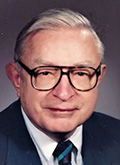 Richard (Dick) Frederick Schwartz, a former professor in Penn’s Moore School of Electrical Engineering, passed away on December 4, 2021 after complications from a fall. He was 99.
Richard (Dick) Frederick Schwartz, a former professor in Penn’s Moore School of Electrical Engineering, passed away on December 4, 2021 after complications from a fall. He was 99.
 University of Pennsylvania seniors Kennedy Crowder and Chinaza Ruth Okonkwo have been named 2022 Marshall Scholars. Established by the British government, the Marshall Scholarship funds up to three years of study for a graduate degree in any field at an institution in the United Kingdom.
University of Pennsylvania seniors Kennedy Crowder and Chinaza Ruth Okonkwo have been named 2022 Marshall Scholars. Established by the British government, the Marshall Scholarship funds up to three years of study for a graduate degree in any field at an institution in the United Kingdom. A chewing gum laced with a plant-grown protein serves as a “trap” for the SARS-CoV-2 virus, reducing viral load in saliva and potentially tamping down transmission, according to a new study.
A chewing gum laced with a plant-grown protein serves as a “trap” for the SARS-CoV-2 virus, reducing viral load in saliva and potentially tamping down transmission, according to a new study.